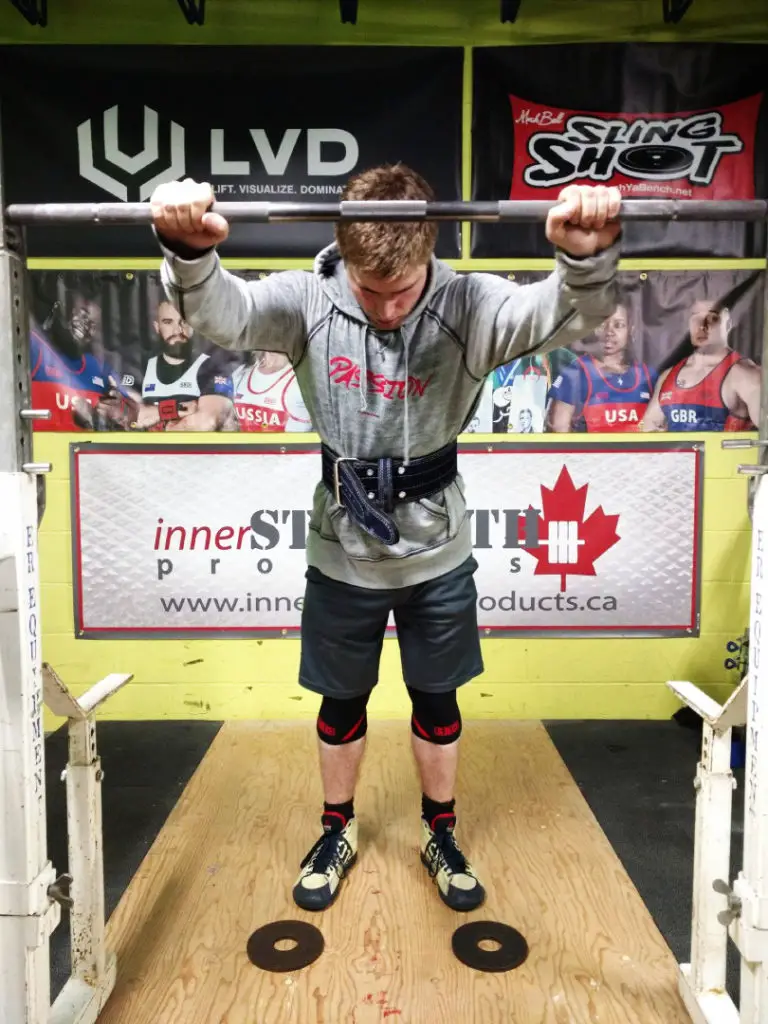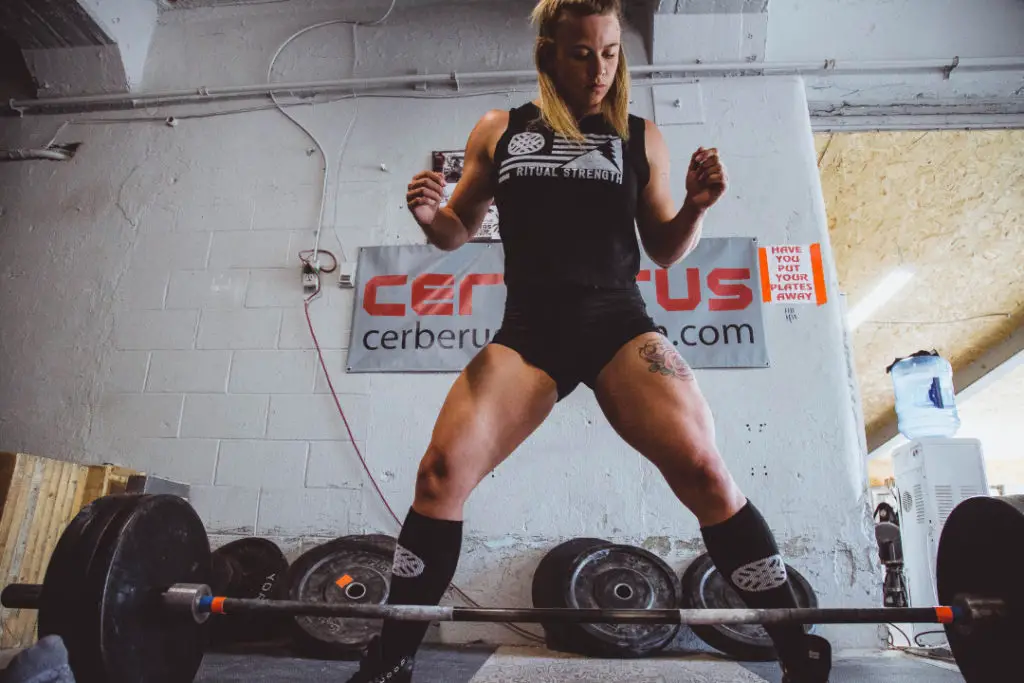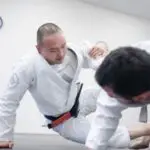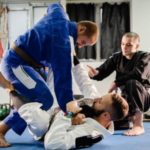A lot of us wonder whether we can train powerlifting and Jiu-Jitsu at the same time. Coming from powerlifting into Jiu-Jitsu I’ve had the first-hand experience of the benefits and downfalls of doing both at the same time. Can you do it? Of course! Can you be competitive in both? Well, that depends on the level of competition you may face.
The Squat, Bench, and Deadlift are fundamental power exercises that develop explosive power and strength endurance which translates into Jiu-Jitsu. To be competitive in both could mean training 10-12 days a week. Recovery will be the limiting factor in being competitive in both disciplines at the same time. Doing one recreationally and one competitive is highly possible.

Can You Train BJJ And Powerlifting At The Same Time?
You can train powerlifting and BJJ at the same time; however, if you’re looking to be competitive it is better to choose one discipline and do the other one recreationally. The Squat, Bench, and Deadlift are fundamental power exercises that develop a lot of power and strength. More strength means you’ll have more explosive power and strength endurance which translates into Jiu-Jitsu.
Both disciplines take a lot of time to be competitive. A competitive Jiu-Jitsu practitioner may train 5-6 days a week, while a competitive powerlifter may train 4-5 days a week. To try to be competitive in both could mean training 10-12 days a week which is training twice a day most days.
Your central nervous system (CNS) will take a massive hit as well as your joints, tendons, muscles, and mind.
Recovery will be the limiting factor in being competitive in both disciplines at the same time.
It is possible to get injured when training two disciplines hard at the same time. Your joints, tendons, ligaments, muscles, and mentality are going to take a beating. Maintaining proper recovery, especially if you work full-time, will be the biggest impact on success.
One method you can attempt to train and be competitive in both is to train for competitions at opposite times of the year. You can maintain strength for powerlifting by reducing intensity so that you can focus on training BJJ competitions.
While on the other side you can taper off the frequency and intensity in Jiu-Jitsu training when you’re starting a new peaking program.
What Is The Best Way To Balance Both BJJ And Powerlifting?
The best way to balance BJJ and powerlifting, according to Chad Wesley Smith, is to train powerlifting and BJJ on the same day to allow for recovery days. Jiu-Jitsu practitioners, like Chewy (Chewjitsu), do not recommend having an intense powerlifting workout on the same day as an intense BJJ day, although taking 3-4 hours between sessions can make it possible.
Another way you can balance both powerlifting and BJJ is to maintain strength during the powerlifting off-season and focus on BJJ, then switch focus during powerlifting season to peak for a competition – tapering off BJJ.

Balancing both Powerlifting and BJJ is possible, but it might take trying intense days on the same day and alternating intense days. Both Chad’s and Chewy’s methods work for them and are great ways to try to find what works best for you.
For me, I tried both methods and found that having my workout days separate from my Jiu-Jitsu days worked best. Jiu-Jitsu would not make my body sore since my strength and condition workouts prepared my body for it. However, I would do my less intense BJJ days after my workout days to assist in recovering.
Examples Of Workout Schedules
Chad Wesley Smith has been a professional powerlifter for many years and he has started Jiu-Jitsu and is a blue belt at the time this video was posted. He has a wealth of knowledge in training both powerlifting and BJJ.
Below is a video of him talking about training both powerlifting and BJJ at the same time and how to focus your training. I’ve taken the program scheduling he has made in his videos and put them in table form here if you do not have time to watch the video.
Definition Of Terms Used In Workout Table
- Hi: High intensity
- Med: Medium intensity
- Low: Low intensity
- S&C: Strength and Conditioning
Serious Competitor
| Day 1 | Day 2 | Day 3 | Day 4 | Day 5 | Day 6 | Day 7 |
| Hi BJJ | Med BJJ | Hi BJJ | Low BJJ | Hi BJJ | Med BJJ | Off |
| Hi S&C | Low S&C | Aerobic | Med S&C | Hi S&C | Low S&C | Aerobic |
Recreational Athlete
| Day 1 | Day 2 | Day 3 | Day 4 | Day 5 | Day 6 | Day 7 |
| Hi BJJ | Low BJJ | Off | Hi BJJ | Med BJJ | Off | Off |
| Hi S&C | Off | Med S&C | Off | Low S&C | Hi S&C | Off |
Primarily Lifting
| Day 1 | Day 2 | Day 3 | Day 4 | Day 5 | Day 6 | Day 7 |
| Med BJJ | Off | Hi BJJ | Off | Low BJJ | Off | Off |
| Hi S&C | Low S&C | Med S&C | Off | Hi S&C | Med S&C | Off |
Train Powerlifting and BJJ On The Same Day
Training Jiu-Jitsu and Powerlifting on the same day will allow you to have days off from training to focus on recovery and recharging your central nervous system (CNS). Plan your training so that your intense powerlifting days are on the same as your intense Jiu-Jitsu days – which does not mean having a long workout and long rolling session.
Training two activities on the same day will be taxing to the body; however, planning your training so that your intense strength days land on your intense Jiu-Jitsu days will be key. Adjust your max effort days to be more intense rolling days at Jiu-Jitsu, and dynamic effort days to low intensity Jiu-Jitsu days.
Ensure that your intense workouts are not as long as it will be too taxing to your body. A short, intense strength day with an intense Jiu-Jitsu day will be optimal for gains and recovery.
Of course, like with any workout schedule, use this as a baseline for some time and adjust it to your physical and mental needs.
Change Training Focus
Plan your competitions to not fall in the same months. Maintain strength with fewer powerlifting days and focus on BJJ when you are going to compete in BJJ. When you are starting to peak for a powerlifting competition taper off the intensity of your BJJ training schedule.
Training BJJ once a week when nearing the end of your peaking program is okay. Training 1-2 days a week to maintain strength when focusing on Jiu-Jitsu for a competition is okay too!
The key to success in both will be to adapt your training and train smart with the time you have.
Does Strength Training Benefit Jiu-Jitsu?
Strength training teaches your nervous system to be explosive while building muscle fibers and increasing bone density. Training your nervous system to be explosive benefits Jiu-Jitsu during take-downs, escapes, passing, and setting up positions. Strong muscles with good technique will give you the upper edge in competitions. While increased bone density can prevent broken bones and fractures.
Strength will benefit your Jiu-Jitsu. Let’s take two BJJ competitors both of which are equal in size and skill level. But, one is stronger than the other. The one with strength has an advantage over the other one.
The stronger person will have better explosive power for take-downs, getting out of bad positions, gripping, forcing the opponent in disadvantageous positions, or preventing submissions.
My Experience With Powerlifting And Jiu-Jitsu
I came from powerlifting into Jiu-Jitsu. Relying on strength to gain the upper hand would tire me out too quickly and prevent me from using efficiency. Using my potential strength would gas me out too quickly, but I did learn how to pace myself and use my strength appropriately.
I decided to see what would happen to my Jiu-Jitsu if I stopped powerlifting, I needed to know if the strength I had was useful.
Turns out it was.
I took 1 year off from powerlifting which meant I lost a lot of my strength. Benching 300 lbs was no longer possible and even 150 lbs felt heavy.
I noticed that I was more tired, more quickly than when I had strength. My body started to ache after class and I was using more energy for explosive movements; like passing someone’s guard, or escaping from mount or side control. Because my nervous system and muscles were no longer conditioned for explosiveness and power it took more energy to perform explosive movements for less effectiveness.
Disadvantage Of Using Your Strength Throughout Rolling
Think about how tired you feel after a heavy Deadlift or Squat. It can take anywhere from 3-7 minutes to recover from a heavy set. If you’re bridging at near maximum output, shrimping, maybe getting in a scramble, and then succeeding in an explosive takedown, you’re going to feel pretty depleted.
Unfortunately for you, the roll doesn’t stop when you are tired.
So, even if you are very strong be careful of how or when you use it. That being said I much rather have the potential of using strength than not.
Conclusion
You can train powerlifting and BJJ at the same time; however, being competitive in both at the highest level will be very difficult to do. It is better to choose one discipline and do the other one recreationally to see the best results.
Your joints, tendons, ligaments, muscles, and mental recovery will be the limiting factor is doing both disciplines competitively. But, if you are looking to do both as a hobby, both will complement each other.
Choosing the right training schedule for your training methods will be the key to success and incorporating the proper recovery (sleep, nutrition, stretching, massages) will allow longevity.
Jiu-Jitsu will give you the cardio, dexterity, and flexibility to help you excel in powerlifting, while powerlifting (strength training) will give you the explosive power and strength endurance used in Jiu-Jitsu.


